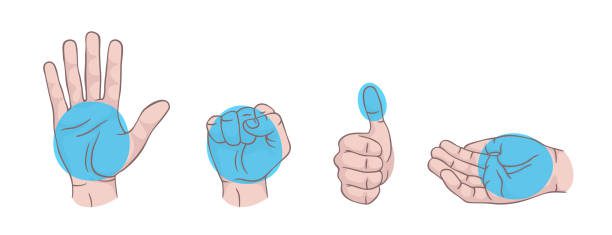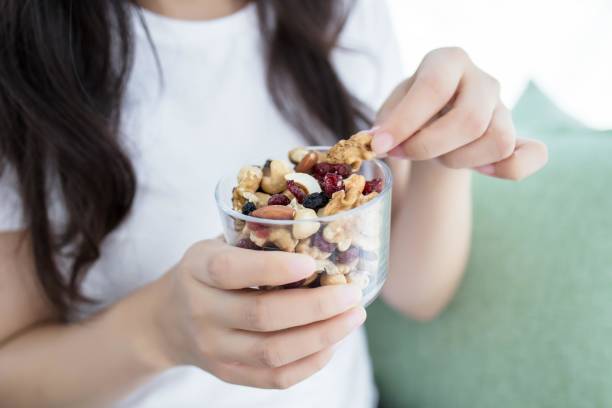This content is for informational and educational purposes only. Always consult a qualified healthcare provider.
I used to eat like I was preparing for a famine that only I knew about.
No jokes. Full plate. No gaps. No shame. The food wasn’t just on the plate, it was touching edges like it was running out of space and oxygen.
And if you had asked me then, I would’ve said I was just “eating healthy.” Meh. I was stuffing trauma, boredom, and vibes onto a spoon.
📋 Table of Contents
The Key Takeaway.
Portion control isn’t about eating like a squirrel or counting grains of rice, it’s about finally admitting that food is not the only thing filling you. Sometimes we’re eating to distract, delay, numb, or prove we deserve pleasure. And when we start noticing that? That’s when real change begins.
What Even Is Portion Control?
Portion control is just eating the right amount for your body’s real needs, not your cravings, not your emotions, and definitely not your cultural guilt trip about “wasting food.”
It’s eating in a way that doesn’t leave you bloated, sluggish, regretful, or planning a last-minute fast to “undo” your own dinner.
How Much Should You Really Eat?


Let’s not lie, most of us aren’t clueless. We know we’re overeating. We just don’t want to stop because that plate is comfort. That second helping is a hug. That third spoon? That’s revenge on whoever said we were “watching our weight.”
We Don’t Eat to Be Full. We Eat to Feel Better.
- I’ve been there, eating fried rice with chicken and spaghetti because “I had a long day.”
- Eating while scrolling because “it doesn’t count if I’m distracted.”
- Eating like I won’t have access to food tomorrow (but I live next to a food shop that opens at 6am).
This isn’t hunger. It’s habit.
It’s a panic switch we flip when we’re tired, when we’re lonely, when we’re trying to feel something. And nobody talks about how eating too much can be a soft form of self-abandonment.
We say “I deserve this” and then eat past the point of joy, straight into guilt and gas.
Your Stomach Is Not a Storage Unit.
- It’s not supposed to stretch like a Sunday skirt.
- It’s a processing space, not a punishment center.
Half the time we’re not even chewing. We’re shoveling. Then blaming the food when our stomach fights back.
Newsflash: if you’re constantly “too full to breathe” after meals, that’s not your body thanking you, it’s your gut filing a complaint.
Portion Control Is Emotional Intelligence in Disguise.
If you want to know if you’re eating too much, ask yourself: Would I still eat this if I were calm, not anxious?
Would I still want more if I weren’t lonely or bored or annoyed?
If the answer’s “probably not…” it’s not hunger. It’s an emotional signal. Portion control is learning the difference between:
- “I’m hungry” and “I’m overwhelmed.”
- “I need food” and “I need rest.”
And you can’t fix tired with rice.
Smaller Portions Aren’t Starvation. They’re Precision.
- You don’t need less food.
- You need the right food in the right amount.
Sometimes the problem isn’t what you’re eating. It’s that you’re eating like it’s the last supper. Every day.
You don’t need to “feel stuffed” to feel satisfied. In fact, true satisfaction hits when your body feels light, but fueled.
- You feel focused, not foggy.
- You can breathe without unzipping your jeans.
- You don’t spiral into food guilt afterwards.
You Can Still Eat What You Love, Just Less of It.
I’m not telling you to toss your favorite foods in the bin. No food is evil. But you’re not a landfill. You don’t have to finish it all because it’s there.
Portion control says: “Yes, enjoy it. But stop when joy turns into judgment.” It’s the difference between:
- One cupcake vs. four.
- Three spoons of rice vs. a mountain.
- Listening to your belly vs. listening to your greedy inner child.
It’s About Self-Trust.
You think you have a “portion problem”? Nah. What you have is a trust problem with your own hunger.
- You don’t trust that you’ll eat again later.
- You don’t trust that fullness is enough.
- You don’t trust your body to know when to stop.
Portion control rebuilds that trust. Slowly. Kindly. Daily.
Try This: Plate Your Food, Then Halve It.
Just as an experiment, plate what you’d normally eat. Look at it. Then halve it.
Now eat that half. Sit for 15 minutes.
If you’re still hungry after that, real hungry, not emotionally fidgety, go get more. No shame. But nine times out of ten? You won’t need it. You just thought you would.
You don’t need more food. You need more presence when you’re eating it. And one day you’ll look back and realize… you were never actually hungry. You just wanted to feel whole.

